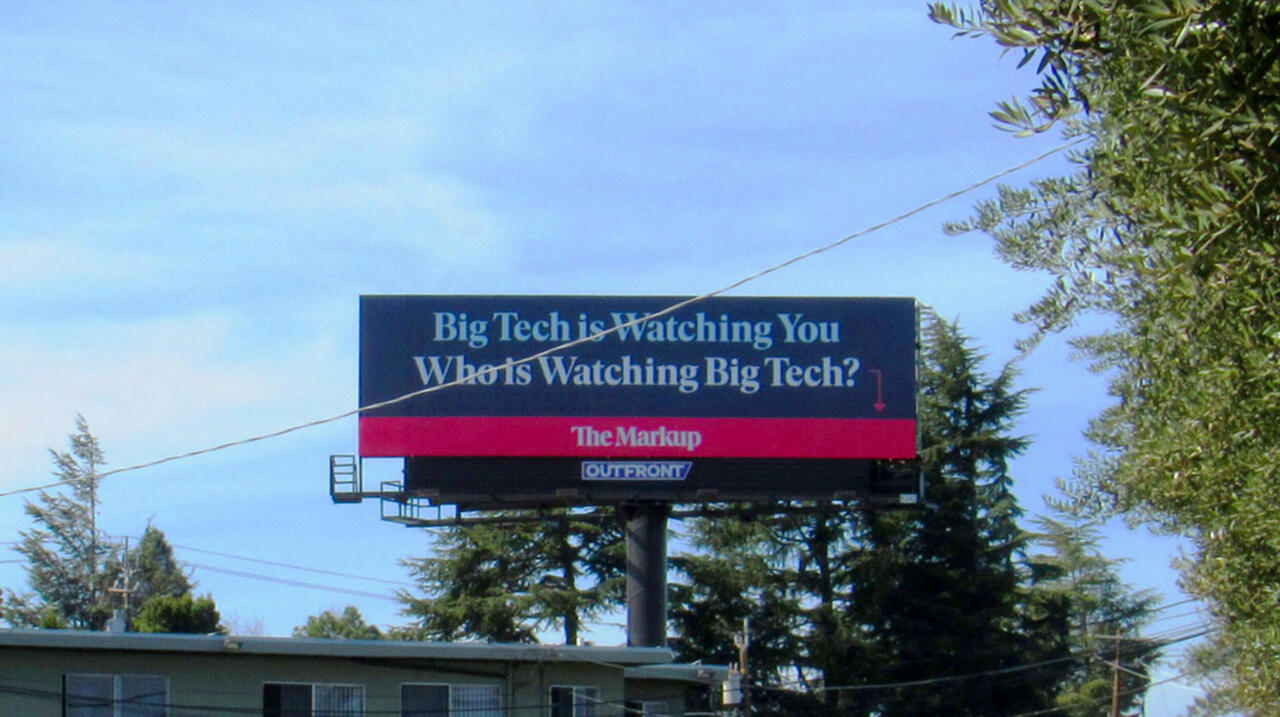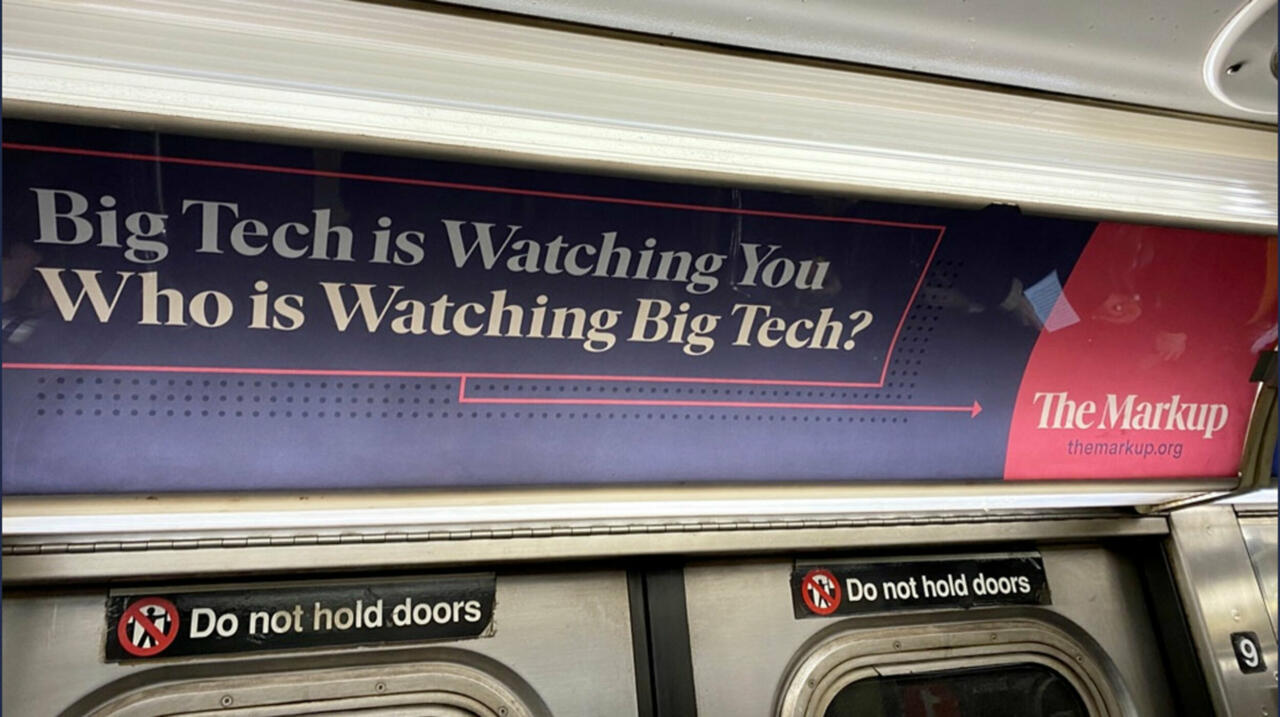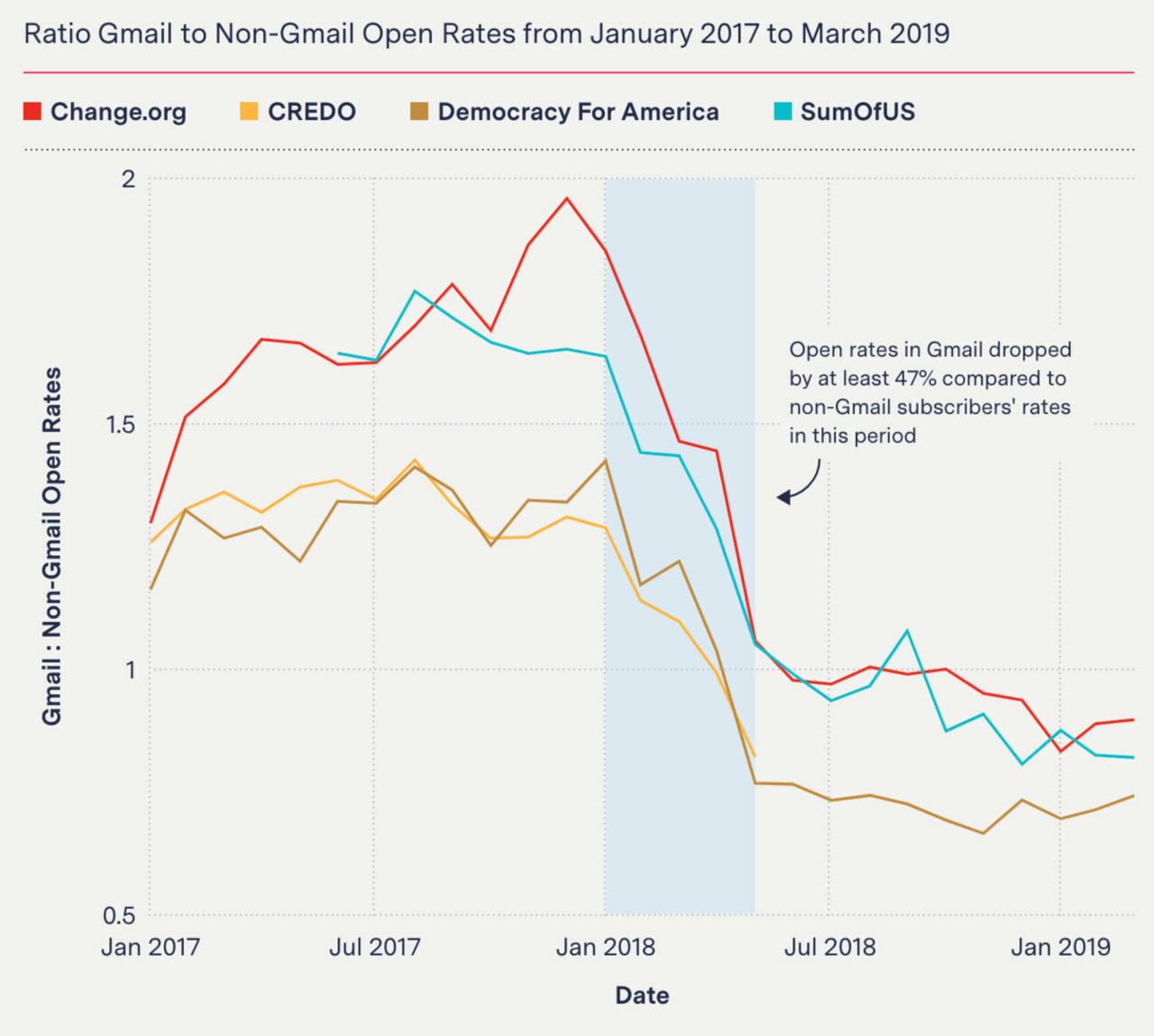Hello!
Welcome to The Markup’s second week of publishing. We are very excited to be up and running. If you live in the San Francisco Bay Area, you may have spotted our billboard on U.S. 101 in Palo Alto.
And if you live in New York City, you might have seen our subway ads (hat tip to Steven Bellovin who snapped this photo):
One of the weird things about our newsroom is that, while we investigate big tech, we are just as reliant on some of it as any other newsroom. Many people will likely see our work only if the big tech algorithms choose to amplify our articles in feeds such as Google News, Apple News or the Facebook news feed.
But it goes further than that. Even you, our newsletter subscribers, could lose out. Our recent investigation into Gmail’s black box email sorting algorithm reveals how email has also become a news feed that is curated by big tech. Which means that you may not see this newsletter if Gmail decides to put it in your “spam” or “promotions” inboxes.
Our investigation began, as many do, with a tip. We learned that some advocacy groups had seen a sudden drop in their Gmail open rates in the spring of 2018. We emailed and called around and found that other groups had experienced a similar drop in open rates at the same time. They had anecdotal evidence that Gmail was sticking their emails in a side tab called “promotions,” instead of the primary inbox, which Google says is “for the mail you really, really want,” and they suspected that was the cause.
It wasn’t easy to get the groups to share their raw data with us, but eventually a few of them did—and we definitely saw a big drop in open rates in the spring of 2018.
Google claimed to us and the groups themselves that nothing had changed in their algorithm that would have caused the plunge. The company is not transparent about what it sends to the promotions tab, which it describes as a place for “deals, offers, and other marketing emails.” Google says Gmail categorization is personalized, meaning user activity can affect where an individual’s emails are delivered.
A lot of news outlets would have stopped there and published a story that said, essentially: On the one hand advocates say this, and on the other hand Google says that. But we’re not that kind of newsroom.
How might we figure out what Google was actually doing with these emails, we wondered? Well, one way would be to conduct a simple test of which political advocacy emails would go into the promotions tab if we did not override Gmail’s default categorization.
So we opened a new Gmail account, using a new phone number and Tor, an anonymizing browser, to avoid sending signals about political leanings based on previous web activity. And then we figured: Why stop at testing what happens with these few advocacy groups? We signed up for the mailing lists of more than 200 politicians and advocacy groups and downloaded the emails we received over four months. (Here’s our full methodology.)
When we analyzed where the emails ended up, we found that the advocates were right: Gmail’s algorithm sent half of all political email to the promotions folder—including, bizarrely, 25 percent of email from current members of Congress via House.gov email accounts, which by law can’t be used for campaigning. Another thing that caught our attention: There was a stark difference in how the algorithm sorted emails from presidential candidates. Pete Buttigieg and Andrew Yang had the best luck landing in our primary inbox, while Bernie Sanders and Amy Klobuchar were most frequently plunged into the promotions inbox.
We didn’t investigate why that was the case—some email marketers have suggested it may be because of the differences in campaigns’ email hygiene or choice of email providers. But we’re not email marketers, so our question was a different one. We wanted to examine Gmail’s sorting algorithm—in the same way social platforms’ algorithms are scrutinized for prioritizing some posts over others.
“The fact that Gmail has so much control over our democracy and what happens and who raises money is frightening,” Kenneth Pennington, a consultant who worked on Beto O’Rourke’s digital campaign, told us. “It’s scary that if Gmail changes their algorithms, they’d have the power to impact our election.”
Google is a private company and is under no requirement to let us see its algorithm or to sort emails from candidates equally. All we can do from the outside is see what the algorithm does—its effects—and leave it up to readers like you to make up your own mind about whether you’re comfortable with that. To uncover those issues for you is why we built this newsroom.
Thank you for joining us on this journey as we tackle one unaccountable algorithm at a time. (And, if this email moves you, we will gratefully accept your donation of any size here.)
Best,
Julia Angwin
Editor-in-Chief


